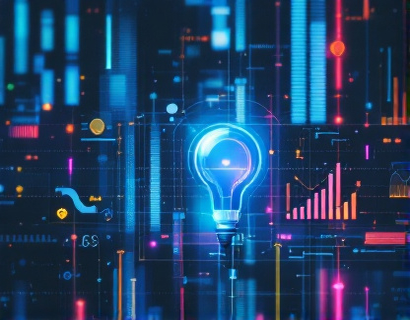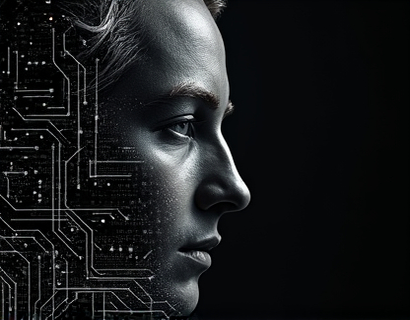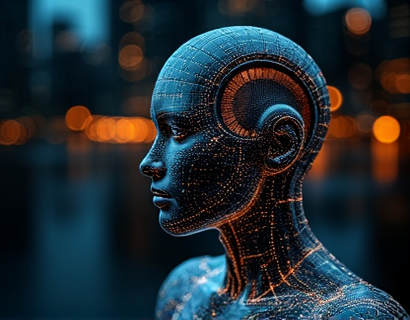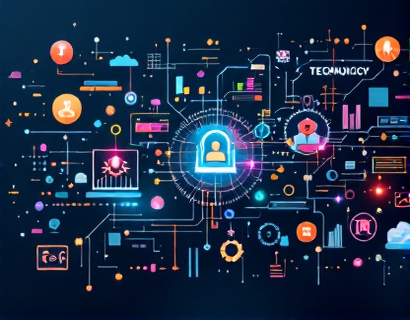Unlocking Enhanced Digital Experiences: Leveraging Crypto and AI for Next-Gen Transformation
The digital landscape is rapidly evolving, driven by technological advancements that promise to redefine how businesses operate and interact with users. At the forefront of this transformation are two revolutionary technologies: cryptocurrency and artificial intelligence (AI). By merging these forces, organizations can unlock unprecedented potential, enhancing both their internal processes and user experiences. This article serves as a comprehensive guide for tech leaders aiming to harness the power of blockchain and AI for next-generation digital transformation.
Understanding the Synergy Between Crypto and AI
To fully leverage the benefits of crypto and AI, it's essential to understand how these technologies complement each other. Cryptocurrency, built on blockchain technology, offers a decentralized, secure, and transparent way to conduct transactions. AI, on the other hand, brings intelligent automation and data-driven insights to the table. When combined, they create a powerful synergy that can optimize business operations, enhance security, and provide personalized user experiences.
Enhancing Security and Trust
One of the primary advantages of integrating crypto into digital systems is the enhancement of security and trust. Blockchain's inherent properties, such as immutability and transparency, ensure that transactions are tamper-proof and verifiable. This is particularly crucial in industries dealing with sensitive data, such as finance, healthcare, and supply chain management. AI can further bolster security by detecting and mitigating threats in real-time, using machine learning algorithms to identify patterns and anomalies that traditional security measures might miss.
For instance, AI-driven security systems can monitor network activities continuously, flagging suspicious behaviors and automating responses to potential threats. This proactive approach not only protects against external attacks but also ensures compliance with regulatory standards, thereby building trust with users and stakeholders.
Optimizing Business Operations
Beyond security, the integration of crypto and AI can significantly optimize business operations. Smart contracts, a key feature of blockchain technology, automate and enforce contractual obligations without the need for intermediaries. This not only reduces costs but also speeds up processes, making them more efficient and reliable. AI can enhance smart contracts by providing intelligent logic and predictive analytics, ensuring that contracts are executed seamlessly and adaptively based on real-time data.
Supply chain management is another area where this synergy shines. By using blockchain to track the movement of goods and AI to predict demand and optimize inventory, businesses can achieve greater transparency and efficiency. AI algorithms can analyze historical data and market trends to forecast future needs, while blockchain ensures that all transactions and movements are recorded accurately and securely.
Personalizing User Experiences
In the digital age, personalization is key to retaining user engagement and loyalty. AI-driven analytics can process vast amounts of user data to create detailed profiles, enabling businesses to offer tailored experiences. When combined with the secure and decentralized nature of crypto, this personalization can be taken to new heights. For example, users can control their data privacy and choose how their information is used, all while enjoying personalized services and rewards.
Crypto tokens can serve as digital currencies within a platform, allowing users to earn and spend based on their interactions and contributions. This gamification of user engagement not only enhances the user experience but also fosters a community-driven ecosystem. AI can further personalize these interactions by recommending content, products, and services that align with individual preferences and behaviors.
Fostering Innovation and Collaboration
The convergence of crypto and AI encourages innovation and collaboration across industries. By adopting these technologies, businesses can participate in decentralized networks and consortiums, sharing resources and insights to drive collective progress. This collaborative approach can lead to the development of new standards and protocols, further accelerating the adoption of blockchain and AI solutions.
For tech leaders, this means staying ahead of the curve by exploring partnerships and open-source projects. Engaging with the broader crypto and AI communities can provide valuable insights and opportunities for innovation. Additionally, fostering a culture of experimentation and continuous learning within the organization will be crucial in navigating the rapidly changing technological landscape.
Challenges and Considerations
While the potential benefits are significant, integrating crypto and AI also comes with challenges that must be carefully managed. Regulatory uncertainty remains a major concern, as the legal framework for blockchain and cryptocurrency is still evolving. Businesses must stay informed about regulatory developments and ensure compliance to avoid legal risks. Transparency and ethical considerations are also paramount, as the use of AI raises questions about data privacy and algorithmic bias.
Technical challenges, such as scalability and interoperability, must be addressed to fully realize the potential of these technologies. Scalability issues in blockchain networks can hinder performance, while ensuring that different systems can work together seamlessly is essential for a cohesive digital ecosystem. Investing in research and development, as well as collaborating with technology partners, can help overcome these hurdles.
Case Studies and Real-World Applications
Several organizations have already begun to harness the power of crypto and AI, achieving remarkable results. For example, a leading financial institution implemented a blockchain-based trading platform enhanced with AI algorithms to detect fraudulent activities and optimize trading strategies. This integration not only improved security but also increased transaction efficiency and reduced operational costs.
In the healthcare sector, a hospital system used blockchain to securely store and share patient data, while AI-powered diagnostic tools provided accurate and timely medical insights. This combination ensured patient data integrity and enhanced the quality of care, demonstrating the transformative potential of these technologies in sensitive domains.
Future Outlook
As blockchain and AI continue to mature, the possibilities for their integration will only expand. Emerging trends such as decentralized finance (DeFi), non-fungible tokens (NFTs), and edge computing will further drive innovation. The adoption of these technologies is expected to accelerate, with more businesses recognizing their value in creating resilient, efficient, and user-centric digital experiences.
For tech leaders, the key is to stay informed, adaptable, and forward-thinking. By embracing the potential of crypto and AI, organizations can position themselves at the forefront of the next digital revolution, unlocking new opportunities and setting new standards in their respective fields.










































